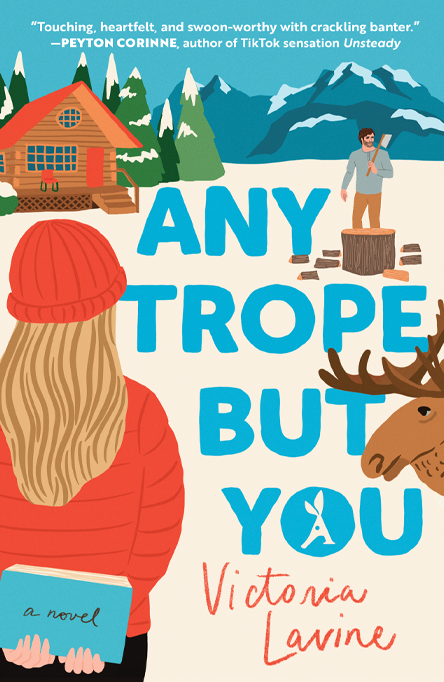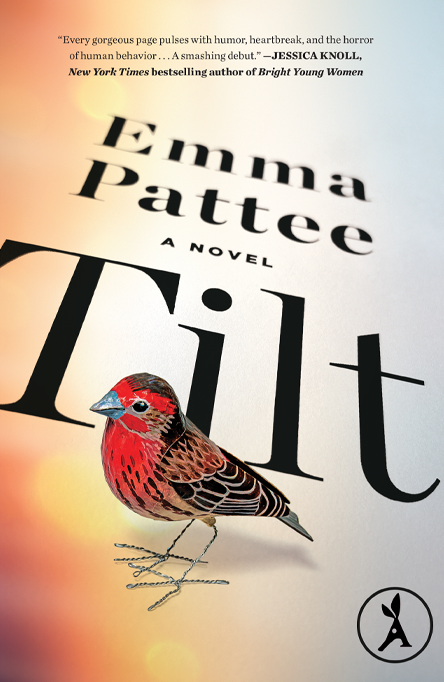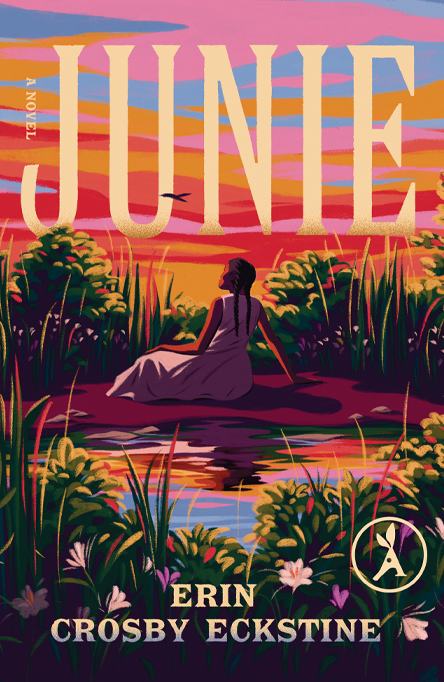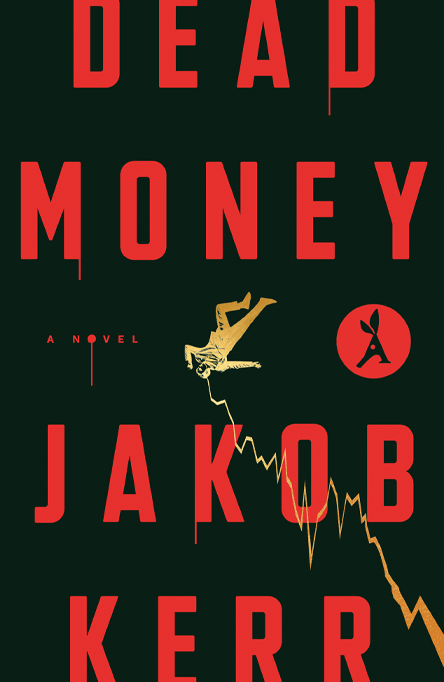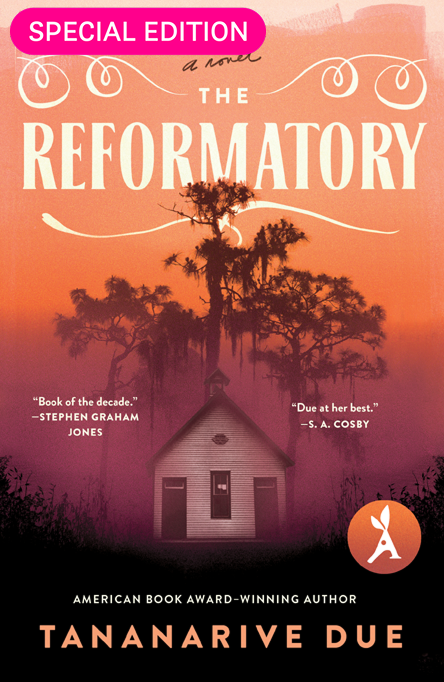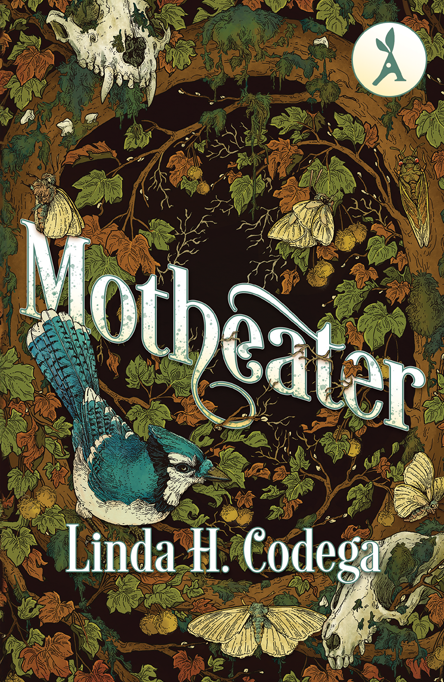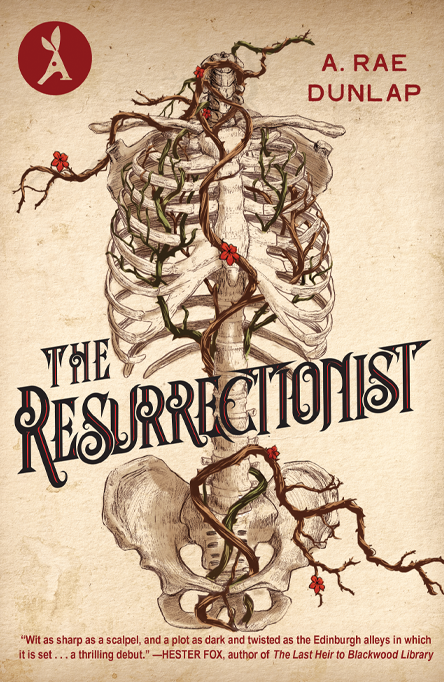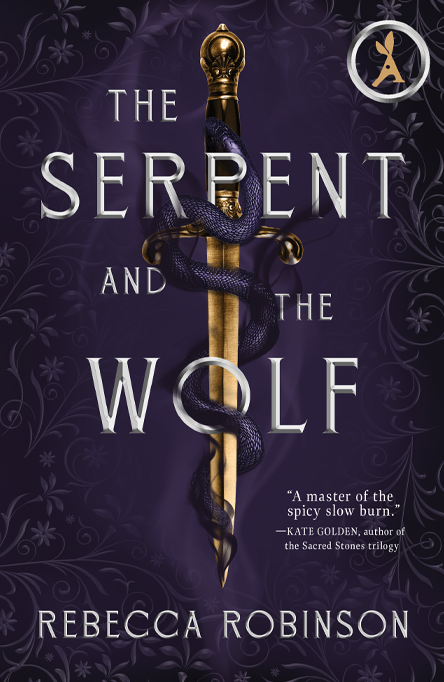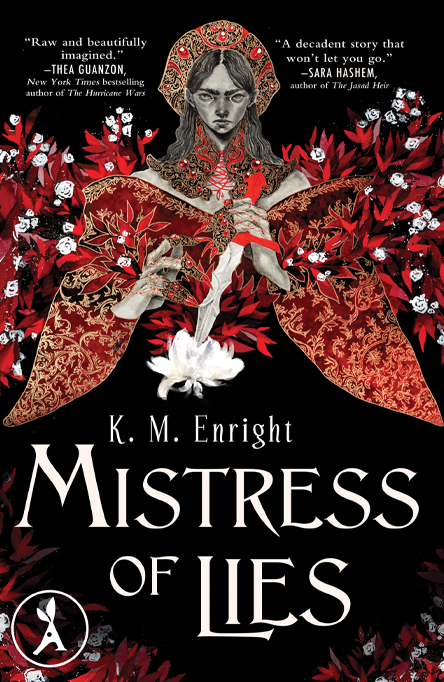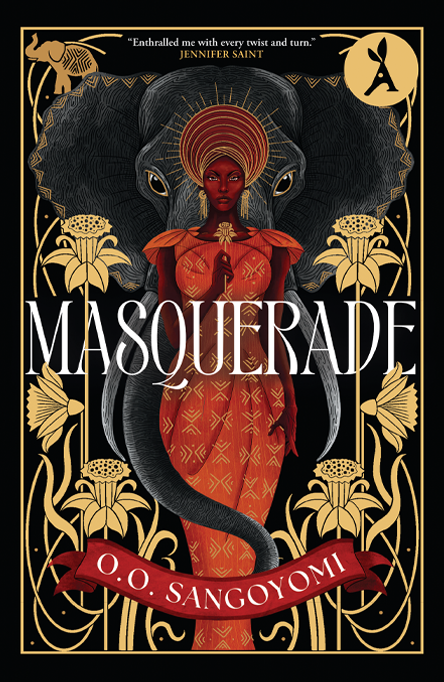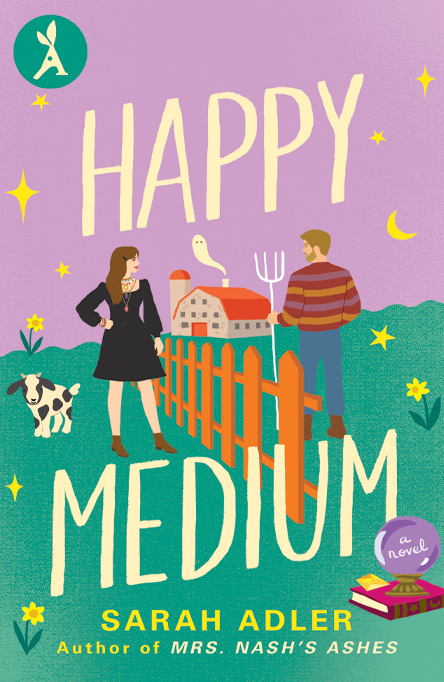The Crucible meets The Virgin Suicides in this haunting debut about five sisters in a small village in eighteenth-century England whose neighbors are convinced they’re turning into dogs.
Alcoholism, brief badger baiting scene.
Even before the rumors about the Mansfield girls begin, Little Nettlebed is a village steeped in the uncanny, from strange creatures that wash up on the riverbank to portentous ravens gathering on the roofs of people about to die. But when the villagers start to hear barking, and one claims to see the Mansfield sisters transform before his very eyes, the allegations spark fascination and fear like nothing has before.
The truth is that though the inhabitants of Little Nettlebed have never much liked the Mansfield girls—a little odd, think some; a little high on themselves, perhaps—they’ve always had plenty to say about them. As the rotating perspectives of five villagers quickly make clear, now is no exception. Even if local belief in witchcraft is waning, an aversion to difference is as widespread as ever, and these conflicting narratives all point to the same ultimate conclusion: Something isn’t right in Little Nettlebed, and the sisters will be the ones to pay for it.
A richly atmospheric parable of the pleasures and perils of female defiance, The Hounding considers whether in any age it might be safer to be a dog than an unusual young girl.
Don't just take our word for it...
“What takes this novel past conceit to commentary lies in its exploration of interiority among all of the characters, not simply the suspected women, but those who observe, accuse and fear. When a community cannot explain misfortune, who suffers? Purvis makes a clever but careful case for combining the Gothic with the paranormal.”
– Los Angeles Times
“Five unusual sisters set a village on edge in this haunting tale of a bewitching madness set in 1700 England. Are the girls a true danger to their neighbors? Will rumor alone put them on the path to destruction? This chilling story can be read as a parable of female empowerment or as a tale of feverish bedevilment overtaking an entire town. Xenobe Purvis has written a book so masterful, you will not be able to look away.”
– Laurie Lico Albanese, author of Hester
“The Hounding is a lush and atmospheric warning of the dangers of individuality for girls indifferent to the gaze of others. Every word in this spare, sharp novel cuts and implicates the small-minded townsfolk who chase rumors like wild dogs chase prey. A virtuosic debut from a brilliantly keen mind and eye. Certainly, Xenobe Purvis shares a bloodline with Shirley Jackson.”
– Diane Cook, author of The New Wilderness
Taste the very first page
The girls, the infernal heat, a fresh-dead body. Marching up the river path, the villagers—adorned with gaudy ribbons, some carrying stones—saw exactly what had taken place. The girls had found their quarry at last; the bite mark on the man’s fist, the spreading blood, spoke of an unholy struggle.
Anne, the eldest sister, stood ahead of the others, and the advancing rabble watched her warily. Some said she had been the first to change, barking in the barren lane by their home. No, others insisted, it started with the littlest, then leapt through the rest like a contagion: Mary first, timid Grace went next, then Hester the tomboy, pretty Elizabeth, and lastly puzzling, peculiar Anne.
The idea of it was enough to turn anyone on their heel, but the villagers told themselves they had nothing to fear. There were too many of them, a vengeful mob; no girl could withstand them, not even wicked ones such as these—black dresses masking bushy tails, pretty mouths filled with pointed yellow teeth. How good it felt, how safe and enfolding, walking shoulder to shoulder towards a shared enemy. The cracked ground trembled beneath their feet.
They chanted the sisters’ names as they approached. Anne, Elizabeth, Hester, Grace, Mary—as though to remind them that they were merely girls. Not dogs nor demons: undistinguished girls. Dirt lifted underfoot, powdering their clothes, their wedding best. They were angry. Perhaps not only about the sisters…
You might also like
LGBTQIA+Gothic FictionIncludes a DogHorrorHistorical Fantasy
Blood on Her Tongue
Lucy's twin sister Sarah is unwell. She refuses to eat, mumbles nonsensically, and is increasingly obsessed with a centuries-old corpse recently discovered on her husband's grand estate.
RomanceDebut NovelIncludes a Dog
Any Trope But You
A bestselling romance author flees to Alaska to reinvent herself and write her first murder mystery, but the rugged resort proprietor soon has her fearing she’s living in a rom-com plot instead.
ThrillerContemporaryDebut Novel
Tilt
Annie is nine months pregnant. She’s shopping for a crib at IKEA. That’s when the massive earthquake hits. There’s nothing to do but walk.
HistoricalDebut NovelMagical Realism
Junie
A young girl must face a life-altering decision after awakening her sister’s ghost, navigating truths about love, friendship, and power as the Civil War looms.
Good Girl
An electric debut novel about the daughter of Afghan refugees and her year of self-discovery and a portrait of the artist as a young woman set in a Berlin that can’t escape its history.
Dead Money
Featuring jaw-dropping twists and a wily, outsider heroine you can’t help rooting for, Dead Money is a brilliant sleight-of-hand mystery.
The Reformatory (2024 Members’ Choice)
A gripping, page-turning novel set in Jim Crow Florida that follows Robert Stephens Jr. as he’s sent to a segregated reform school that is a chamber of terrors where he sees the horrors of racism and injustice, for the living, and the dead.
Unromance
A recently dumped TV heartthrob enlists a jaded romance novelist to ruin romance for him—one rom-com trope at a time—so he never gets swept off his feet again…
Motheater
In this nuanced queer fantasy set amid the Appalachian Mountains in Virginia, the last witch of the Ridge must choose sides in a clash between industry and nature.
HistoricalDebut NovelLGBTQIA+Gothic FictionDark Academia
The Resurrectionist
A twisty gothic debut set when real-life serial killers Burke and Hare terrorized the streets of Edinburgh, as a young medical student is lured into the illicit underworld of body snatching.
The Serpent and the Wolf
A thrilling romantasy debut combines high-stakes political intrigue and a steamy, slow-burn, enemies-to-lovers romance.
What It’s Like in Words
A dark, intense, and compelling account of what happens when a young woman falls in love with the wrong kind of man.
Sci-fiLGBTQIA+Includes a DogHorror
American Rapture
The instant USA Today bestseller from CJ Leede, author of Maeve Fly—a scorching and sweeping new novel about the end of the world as we know it.
HistoricalDebut NovelIncludes a Dog
Eleanore of Avignon
The story of a healer who risks her life, her freedom, and everything she holds dear to protect her beloved city from the encroaching Black Death.
Colored Television
A brilliant dark comedy about love and ambition, failure and reinvention, and the racial-identity-industrial complex.
The Truth According to Ember
A Chickasaw woman who can’t catch a break serves up a little white lie that snowballs into much more in this witty and irresistible rom-com by debut author Danica Nava.
Mistress of Lies
A villainous, bloodthirsty heroine finds herself plunged into the dangerous world of power, politics and murder in the court of the vampire king in this dark romantic fantasy debut.
Catalina
by Karla Cornejo Villavicencio
A year in the life of the unforgettable Catalina Ituralde, a wickedly wry and heartbreakingly vulnerable student at an elite college.
HistoricalDebut NovelMagical Realism
Masquerade
Set in a wonderfully reimagined 15th century West Africa, Masquerade is a dazzling, lyrical tale exploring the true cost of one woman’s fight for freedom and self-discovery, and the lengths she’ll go to secure her future.
Whoever You Are, Honey
This darkly brilliant debut novel explores how women shape themselves beneath the gaze of love, friendship, and the algorithm—by a thrilling feminist voice for the age of AI.
ThrillerDebut NovelIncludes a Dog
You Know What You Did
In this heart-pounding debut thriller for fans of Lisa Jewell and Celeste Ng, a first-generation Vietnamese American artist must confront nightmares past and present...
Lovers and Liars
Three wildly different sisters reunite for a destination wedding at an English castle in this heartfelt and rollicking novel from the New York Times bestselling author of The Jetsetters.
RomanceIncludes a DogMagical Realism
Happy Medium
A clever con woman must convince a skeptical, sexy farmer of his property's resident real-life ghost if she's to save them all from a fate worse than death, in this delightful new novel from the author of Mrs. Nash's Ashes.


